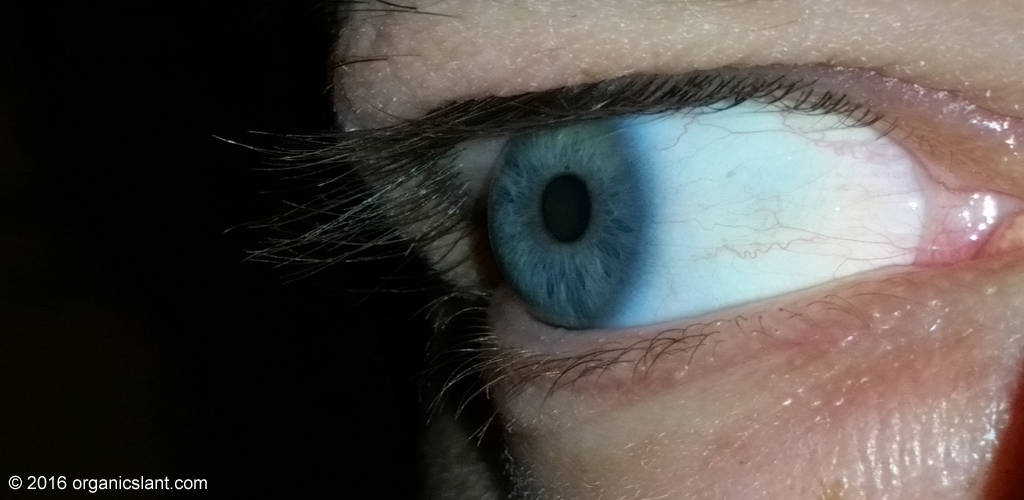Contact lenses may alter the natural microbial community of the eyes, according to a study published this week in mBio®, an online open-access journal of the American Society for Microbiology.
In a study of 58 adults seeking outpatient eye care, researchers at New York University School of Medicine found that contact lenses make the eye microbiome more skin-like, with higher proportions of the skin bacteria Pseudomonas, Acinetobacter, Methylobacterium, and Lactobacillus and lower proportions of Haemophilus, Streptococcus, Staphylococcus, and Corynebacterium.
It’s unclear how these changes occur, said senior study author Maria Dominguez-Bello, PhD, an associate professor of medicine at the university, “if these bacteria are transferred from the fingers to the lens and to the eye surface, or if the lenses exert selective pressures on the eye bacterial community in favor of skin bacteria.” Wearing contact lenses has been identified as a risk factor for the development of eye infections such as giant papillary conjunctivitis and keratitis, “so these questions are important,” she said.
“Our study has the potential to help future studies explore novel insights into a possible role of the microbiome in the increased risk for eye infections in contact lens wearers,” Dominguez-Bello said.
Researchers used a laboratory technique called 16s rRNA sequencing to compare the bacterial communities of the conjunctiva (the eye surface) and the skin under the eye from 58 adults. They also analyzed samples from 20 of the study participants (9 lens wearers and 11 non-lens wearers) at three time points over the course of six weeks.
Looking at 250 samples in the lab (116 from cotton swabs of the conjunctiva, 114 from cotton swabs of skin under the eye, and 20 contact lenses), researchers found a higher diversity of bacteria on the ocular surface than on the skin under the eye or on the contact lenses, which was a surprising result, Dominguez-Bello said. The ocular surface microbiota of those who wore contact lenses was more skin-like compared to those who did not wear lenses. It was enriched in the bacteria Pseudomonas, Acinetobacter, Methylobacterium, and Lactobacillus. In non-lens wearers, these bacteria were detected at a higher relative abundance in skin samples compared to the eye (except for Lactobacillus), suggesting that these bacteria could be classified as skin bacteria. The bacteria Haemophilus, Streptococcus, Staphylococcus, and Corynebacterium were depleted in the ocular microbiota of lens wearers compared to non-lens wearers.
Comparing the conjunctival microbiota with that in the skin under the eye, researchers found that the conjunctiva of non-contact lens wearers had a higher abundance of the bacteria Haemophilus, Neisseria, Streptococcus, Staphylococcus, Rothia, and Corynebacterium and lower abundance of Pseudomonas, Acinetobacter, Sphingobium, and Methylobacterium. There were no significant differences in bacterial diversity and composition between the conjunctiva or skin microbiota at different time points.
Over 30 million Americans wear contact lenses, nearly one third of the approximately 100 million people worldwide who use them, according to statistics from the U.S. Food and Drug Administration.
It’s too early yet to offer any advice to contact lens wearers, Dominguez-Bello said: “Other studies have shown increased risks for eye infections in contact lens wearers, and this might relate to impacting the microbiome. When we can better understand the mechanisms, we will be able to test hypotheses and propose preventive measurements. The study was supported by the Research to Prevent Blindness Foundation.”

 Honey as an antibiotic: Scientists identify a secret ingredient in honey that kills bacteria
Honey as an antibiotic: Scientists identify a secret ingredient in honey that kills bacteria Manuka honey could help clear deadly drug-resistant lung infection
Manuka honey could help clear deadly drug-resistant lung infection Recurrent UTIs linked to gut microbiome, chronic inflammation
Recurrent UTIs linked to gut microbiome, chronic inflammation Friendly bacteria love the humble apple
Friendly bacteria love the humble apple